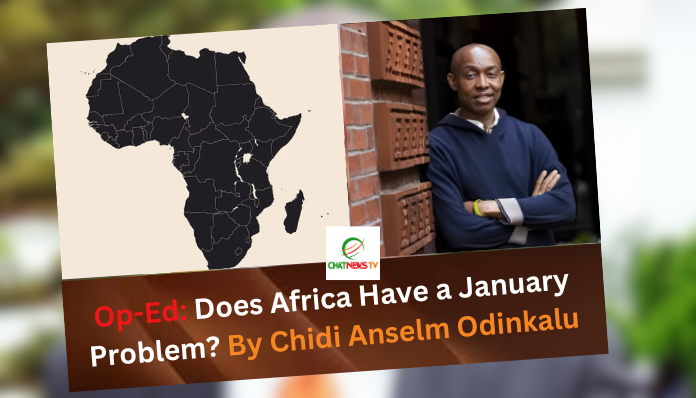57 years ago almost to the month, celebrated Kenya political scientist, Ali Mazrui, observed that “for some reason a disproportionate number of the historic acts of violence in Africa since independence have tended to happen in the months of January and February.” He had good reason for this.
In January 1961, the Belgians and the Americans arranged to hand over to Moise Tshombe in Katanga, Patrice Lumumba, the inconvenient post-colonial Prime Minister of the country now known as the Democratic of the Congo. The following month, the world learnt of the brutal fate that befell Lumumba. The Congo and, indeed Africa, have both paid a heavy price for those events.
Togo’s first president, Sylvanus Olympio, was killed in January 1963. Two years later, in January 1965, Pierre Ngendandumwe, Burundi’s Prime Minister, was assassinated.
In the year before the assassination of Ngendandumwe, meanwhile, Ugandan, John Okello, led overthrow of Sultan Jamshid bin Abdullah in the very bloody Zanzibar Revolution. The Central Intelligence Agency (CIA) would later record with clinical economy that the effect of the revolution was that “the Arab regime of Zanzibar vanished in a single day as its leaders fled, died or were interned.”
ALSO READ: Op-Ed: In the Matter of GTBank’s Persecution of Poor Bloggers By Chidi Anselm Odinkalu
The year after the assassination in Burundi, it was the turn of Nigeria’s Prime Minister, Abubakar Tafawa Balewa together with the regional premiers in the Northern and Western regions. The following month, Ghana’s Kwame Nkrumah was overthrown while on his way to see Mao Tse Tung in Beijing, China.
Professor Mazrui never did manage a dispositive answer to his question as to whether there is “any special reason why the opening months of January and February from year to year should have had such a disproportionate share of Africa’s great acts of turbulence?” Instead, he offered a telling insight, arguing that these events were the fallouts of the search for two forms of legitimacy essential to the trajectory of Africa after the colonial experience. One was the legitimacy of the state and the other was the legitimacy of regimes or of rulers.
Nearly six decades later, these twin problems of state and regime legitimacy continue to afflict African countries but the ways in which different countries now respond to them have arguably made our collective African Januaries a little more interesting.
In many countries, elections – rather than assassinations – have become the chosen path. In 2024, the people defenestrated ruling parties in Botswana, Ghana, Senegal, and even South Africa. Namibia’s ruling party edged a contest that produced the country’s first female president in an act of political survival for the ruling SWAPO that may just have postponed its day of electoral reckoning.
ALSO READ: In Memory of The ‘Unknown’: The Story of Elechi Igwe 1964-1990 By Chidi Odinkalu
Some of the elections during the year, of course, re-enacted familiar scenes from a discredited part in Africa’s history. Tunisia’s election in October 2024 arranged to re-select law professor and incumbent president, Kais Saied, with 90.7% of the votes cast. It was like a scene from the period before the Arab Spring.
Since the turn of the millennium, however, many of Africa’s elections have been increasingly decided by judges not voters. In the latest example, in Mozambique, the ruling FRELIMO party procured a judicial validation of an election widely seen as heavily rigged in its favour. A country already ravaged by a murderous insurgency in its northern region of Cabo Delgado and a destructive cyclone must now live with self-inflicted ungovernability. The Botswana Democratic Party (BDP), in power since independence in 1966, made a different choice when the people rejected it.
Judicial involvement in elections is not without high risk to the judges involved or to political stability. To deliver their judgment nullifying the rigged presidential election in 2020, the Malawi Defence Forces arranged to clothe all five judges of the Constitutional Court of Malawi who sat on the case with bullet-proof vests.
In the same year, by contrast, the ruling party in Mali chose to steal through the courts 31 seats won by the opposition in parliament. The result was an uprising that led first to the dissolution of the Constitutional Court, and later the overthrow of the government in a military coup.
Ghana’s 2024 election was the first in nearly one and a half decades not to end up in the courts. The candidate of the ruling party and incumbent Vice-President, Mahamudu Bawumia, conceded the race long before a far-from-credible electoral commission had got around to announcing any results. Ahead of the election, the opposition had made it clear that they would not contemplate going to court if they were denied victory. In his concession, Bawumia saved the country from what would have been an assured date with instability.
Judges do not always wait until after the ballot to weigh in with their own votes. In Burundi in 2015, President Pierre Nkurunziza was determined to run for a third term even though it seemed clear that he was constitutionally barred from doing so. The case ended up before the Constitutional Court where the judges initially decided to uphold term limits barring the president from running for a third term. Under pressure from a barrage of very personalized presidential threats, the Vice-President of the Constitutional Court, Sylvere Nimpagaritse, fled into exile and “the remaining judges then changed their decision in Nkurunziza’s favour.”
READ ALSO: Op-Ed: Tinubu’s Taxing Times By Chidi Anselm Odinkalu
The model of judicial overthrow of the popular will and its replacement with judges as the only eligible voters is, of course, an exclusively Nigerian invention. The politicians who control Nigeria’s Independent National Electoral Commission (INEC) are quick to intone “Go to court” at the end of every rigged election, secure in the knowledge that they have also rigged the courts and have many of the judges safely locked away inside their bedrooms.
In the 2023 election cycle, over 81% of the seats contested ended up being decided by the judges. This business model of managing elections is bad both for democracy and for independence of the judiciary.
First, it denies citizens the right to decide who governs them or on what platform.
Second, the way in which judges achieve this result is not much different from the toppling of elective government by soldiers with guns. The only difference when the judges do it is that they deploy the artifice of law when in fact what they seek to do is to replace legality with corrupt whim.
Third, the depth of judicial involvement in elections in Nigeria makes the judiciary a plaything of the politicians who have every incentive to capture and corrupt it.
Fourth, this creates an internal market in judicial business that casualizes all but political cases where the judges involved increase their chances of trading in judicial power and legitimacy for cash or powerful networks at the hands of politically exposed litigants.
In 2025, Nigeria will enter the foothills of another major election cycle. With all the political parties all but defanged, the main theatre of activity will be the judiciary. In Imo State, for instance, where the National Judicial Council (NJC) has removed the Chief Judge for falsifying her age, the State Governor has chosen not to designate any replacement because, ostensibly, he does not find the options available politically palatable.
In the elections in Tanzania this year and in Uganda at the end of the year, judges will be very active persecuting regime opponents. In Nigeria, that is already routine even before the electoral gong tolls. The upshot is almost assuredly to guarantee uncertainty instead of ending it.
When he wrote in 1968, Ali Mazrui thought that the opening months of the year seemed to guarantee turbulence in Africa. Today, that tendency occurs all year round. Far from becoming less turbulent, Africa’s January may have infected the remaining months of the year with a turbulent contagion.
A lawyer and a teacher, Odinkalu can be reached at chidi.odinkalu@tufts.edu
 Donate
Donate



